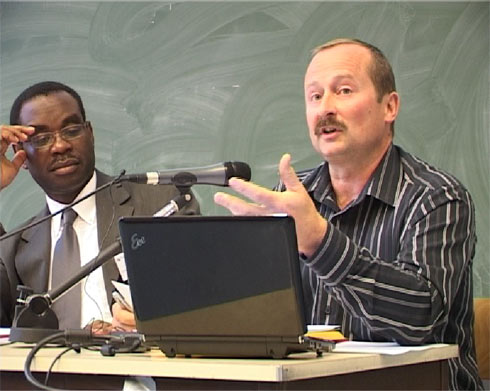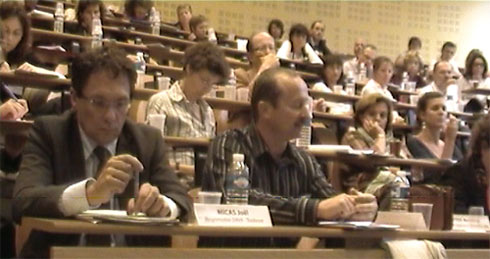8./9.10.2009
National Symposium "Evaluation in the practice of juries in ÔÇťValidation of Acquired ExperienceÔÇŁ (VAE)
National Symposium actors VAE, Strasbourg 8 and 9 octobre 2009
Partners of GIP FCIP Alsace IBAK European project, held a "workshop" in the form of a national symposium on 8 and 9 October 2009 in Strasbourg. The University of Strasbourg, was very interested in the theme of the project IBAK.
He joined the GIP FCIP Alsace and has contributed to the success of this seminar by giving an important echo in the French academia.
Through this collaboration with the University of Strasbourg, the public responded to the invitation was extended to all actors of VAE in France.
The roundtable participants of the symposium, leading experts and authorities in identification, evaluation, and recognition of skills acquired by experience, were representative figures, from trade unions and employers, teachers and researchers (academics) and national or regional responsible of services validating departments and universities.

The guests and participants came from many French regions (Auvergne, Paris / Ile de France, Bretagne, Provence-Côte d'Azur, etc..). During this meeting they share the opportunity and pleasure to discuss current concerns of each other.
The organization of different roundtables allowed to cross the points of view of the VAE actors with those of professional companies and their human resources departments.

The central question discussed at the symposium focused on the nature of the evaluation performed by the juries of VAE and the possibility of bringing the methodologies developed in companies to increase the qualifications of the job and identify individual skills.
To what extent can we consider that the jury VAE confronting the repository of the diploma to the experience of the candidate makes an assessment of the qualification acquired by the exercise of the profession?
A conclusion was in any case imposed : juries members should receive mandatory training in the analysis of work and employment.
A set of products of this symposium is available on the website :
http://www.gip-fcip-alsace.fr/ibak








